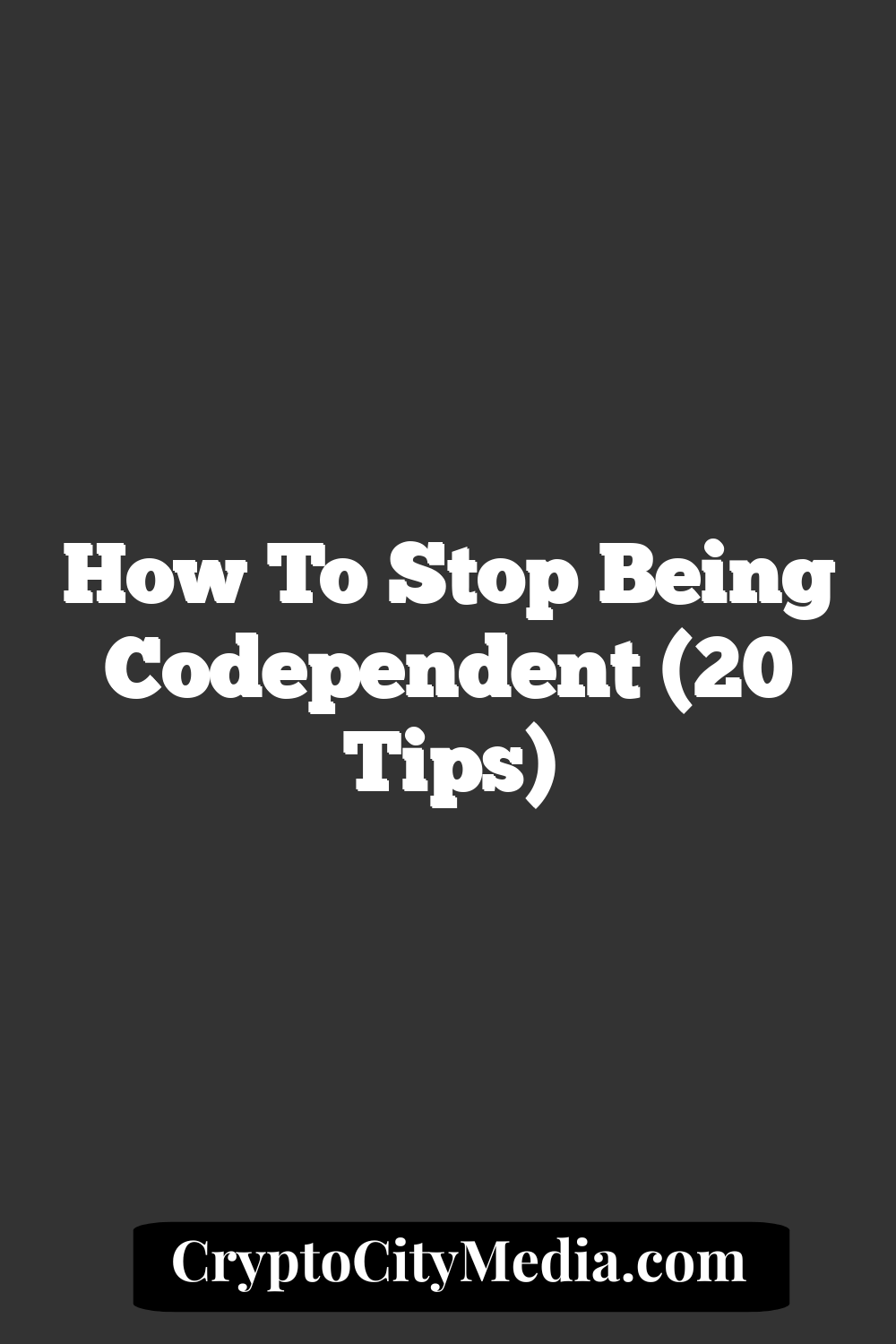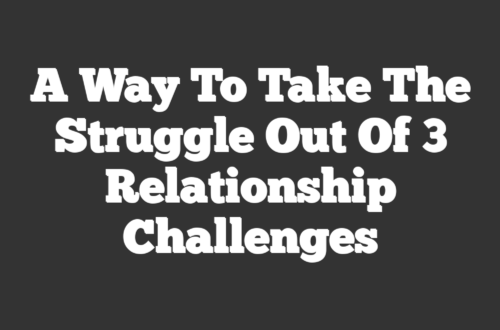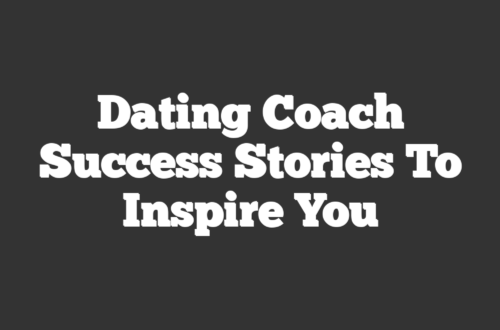
Do you feel stuck in tough relationships or find yourself always trying to make others happy but forgetting about what you need? This might mean you’re dealing with codependency.
Realizing this is where the change begins. And it leads to friendships that feel good and a new self-confidence.
I’m going to break it down simply and help you find ways to grow out of it, step by step!
What Is Codependency?
At its core, codependency is an emotional and mental state where individuals forsake their needs and desires to fulfill those of others, predominantly out of an ever-growing need for approval and a fear of rejection.
Codependency in Relationships
Believe it or not, codependency can lurk in any type of relationship. However, in intimate partnerships, it’s especially evident.
The Caretaker
One partner might take the caretaker role, constantly sacrificing personal needs or even healthy boundaries in a bid to save or fix the other.
The Taker
Conversely, the other partner may become reliant, excessive, and even manipulative to maintain this beneficial arrangement.
Know the Signs of Codependency
Being in a codependent relationship often means you’re putting someone else’s needs before your own — constantly. It’s like you’re stuck in a helper role, but you end up feeling drained and unappreciated.
Some signs include:
- Having a hard time making decisions without seeking reassurance.
- Staying in a relationship, even if it’s harmful.
- Feeling anxious when you’re not with the other person.
Recognizing these signs helps because you can’t change what you don’t see. Once you spot them, you’re better positioned to make changes. It’s like realizing you’ve been wearing shoes that are too tight — you can finally take them off and find ones that fit better.
Learn More About Codependency
Understanding codependency can be a game-changer because it shines a light on behaviors you might think are just part of who you are.
Imagine you’ve been trying to follow a recipe in a dim kitchen. Once you turn on the light, you can see clearly, and cooking becomes simpler — that’s what learning about codependency does. It offers clarity.
You can find loads of information in books, credible websites, and podcasts all about it. This knowledge equips you with the tools you need, kind of like a road map that guides you toward healthier relationships.
Talk to a Counselor or Therapist
Chatting with a therapist can be as relieving as talking to a friend who understands your toughest problems. They listen and guide you without judgment.
A good counselor helps you sift through your feelings and find the roots of your codependent behavior. Think of them as a coach in a sport — you have the potential, but they can help you play better.
Through therapy, you learn new, healthy ways to relate to others. Instead of just going through the motions in your relationships, you actually get to improve them. It opens up a space where you’re free to work on your issues — it’s a safe zone for your personal growth.
Set Your Personal Limits
Just like how a fence keeps people from walking all over your yard, boundaries protect your personal space and feelings. They’re the rules and limits you set for yourself and those around you.
Boundaries can look like saying “no” when you’re already stretched too thin or telling someone how you expect to be treated. They aren’t mean or selfish; they’re necessary for a healthy life.
Without boundaries, others might take advantage of you, or you might take on too much and get overwhelmed.
To get started, think about what makes you feel uncomfortable or stressed in your relationships, and that’s where you need to draw the line.
Make Time for Yourself
Imagine your day is a pie. If you give everyone a slice, there might be none left for you. That’s why it’s important to save a piece of your day just for yourself.
Use this time to do things you enjoy or to relax and recharge. It could be reading, walking, or just sitting quietly with a cup of tea.
When you make time for yourself, you’re telling yourself that you matter. It’s a balance — of course, caring for others is great, but you need to care for yourself, too.
Practice Saying “No”
Saying “no” can be tough — it’s like trying to use your non-dominant hand to write. But with practice, it gets easier, and you get better at it.
When you always say “yes,” you might end up doing things you don’t want to do or can’t handle. This leaves you tired, stressed, or resentful. Start small. Say “no” to a small favor you’re not keen on doing. It’s not about being rude; it’s about respecting your own time and needs.
Over time, you’ll find that the world doesn’t end when you say “no” — in fact, it respects your honesty.
Feel Good About Yourself
Building self-esteem means seeing your own value, just like you appreciate a good friend. It’s believing you’re worth it, even when you make mistakes or things don’t go as planned.
When you feel good about yourself, you don’t need someone else to constantly tell you you’re okay; you know it deep down. This confidence helps you make decisions that are best for you, not just to make someone else happy.
Work on praising yourself, focus on your strengths, and forgive yourself when you slip up. Each step you take to boost your self-esteem helps you depend less on others for your happiness.
Find Hobbies You Love
Having a hobby is great for you because it’s something that’s all yours. You do it because you enjoy it, not to please someone else. A hobby gives you a break from daily tasks and lets you express yourself.
Whether it’s gardening, collecting comics, or running, your hobby should give you a sense of joy and accomplishment.
As you spend time on your hobby, you also get better at focusing on your own needs and balancing your life. It can help you connect with yourself and others who share your interests.
Make Your Own Choices
One key part of not being codependent is learning to decide things on your own. That includes small decisions, like what to wear, to bigger ones, like choosing a career path or where to live.
Trust yourself to choose, and believe in your own judgment. Part of this process is accepting that it’s okay to make mistakes — that’s how you learn. The more you practice, the more confident you’ll become in your own ability to handle life’s ups and downs.
Handle Your Own Money
Controlling your finances gives you power over your life. It’s about knowing what you have, what you owe, and making plans for your money.
You don’t have to rely on someone else to tell you what’s best. Learn to budget, save, and spend wisely. Being able to stand on your feet financially helps you feel secure and independent. This isn’t just about being rich; it’s about being smart with what you have.
It’s also about the freedom to make choices that are right for you without financial pressure from others. Over time, managing your money well helps you trust yourself more.
Good communication is key in any relationship. It’s about talking honestly and listening to what others say.
When you share how you feel, you let others know you better. Speaking up also helps you stay true to yourself. It’s important not to keep everything inside.
Sometimes talking about feelings can be hard, but it’s a big step toward being independent in your relationships. The more you practice, the easier and more comfortable it gets. Opening up allows for deeper connections and mutual respect.
Live in the Moment
Mindfulness is about paying attention to now. Notice what’s happening around you — the sights, sounds, and smells. Pay attention to your thoughts and feelings without judgment.
Being mindful helps you enjoy life more because you’re not distracted by past worries or future fears. It’s like quieting down the noise in your mind to hear what your heart’s saying. This helps reduce stress and makes you feel calmer and more in control.
When you’re fully present, you can enjoy your own company and the company of others without feeling the need to change anything. Practicing this regularly can make a big impact on your well-being and relationships.
Related: How to Improve Mindfulness and Meditation
Enjoy Your Own Company
Spending time alone can be one of the most rewarding things you do for yourself. It’s your chance to do whatever makes you happy, without considering anyone else. This time is crucial because it helps you understand yourself better. It’s not about being lonely; it’s about enjoying your own presence.
When you’re good at being alone, you’re more likely to choose relationships for the right reasons, not just to avoid being by yourself. It teaches you self-sufficiency.
You’ll find that decision-making gets easier because you know what you want. Plus, you’ll feel stronger inside, and that strength is something nobody can take from you.
Have Supportive Friends
Surrounding yourself with people who support you can make a world of difference. They are the ones who cheer you on and help you through tough times.
Friends like these respect your boundaries and encourage your efforts to be independent. They listen when you need to talk, and they’re honest with you, even when it’s hard. It’s a two-way street; you’re there for each other.
Having such friends means you’re less likely to let codependent behaviors creep back into your life. They remind you of who you are and what you can do. Over time, their positive influence can help you stay on track with your personal growth.
Volunteer or Contribute
Doing things for others can be really fulfilling. It makes you feel good inside and helps you connect with people. But it’s important to help in a way that doesn’t make you feel worn out or taken advantage of.
Strike a balance between giving and receiving; that’s the key. Your acts of kindness should come from a place of strength, not obligation.
When you help others from this place of strength, your relationships are healthier and more equal. You’ll find that this empowers both you and the person you’re aiding. It teaches you that you can be caring and still take care of yourself.
Write Down Your Feelings
Putting your thoughts on paper is a powerful way to understand them better. You don’t have to worry about what others think; just be honest with yourself.
Writing can help clear your mind and figure out what you really want. It’s also a private space to express yourself fully. When you write regularly, you may notice patterns in your thinking or behavior that you want to change.
This self-reflection is a healthy habit that can lead to personal growth. Seeing your progress in writing can also be very encouraging. Over time, your journal becomes a record of your journey and all the ways you’ve grown.
Work on Improving Yourself
Personal growth is all about getting better bit by bit, every day. It’s not only about fixing problems but also about building new skills and ways of thinking. Focus on what you can do to be the person you want to be. This might mean learning, practicing new habits, or changing old ones.
As you grow, you rely less on others for your sense of self-worth. Working on yourself helps you become more independent in your thoughts and actions.
It’s about creating a life that feels right for you, not one that’s shaped by what others expect. Every small change adds up to a big difference in the end.
Get to Know How You Form Connections
Understanding your attachment style means looking at how you relate to others. Do you cling too tight, or keep too much distance?
Knowing this can help you see why you act certain ways in relationships. It gives you a chance to work on forming healthier connections. Recognizing patterns helps you avoid falling into the same old traps. Being aware means you can make choices that are better for you and the people you care about.
When you understand your attachment style, you can work toward a balance of closeness and independence. It’s about making relationships satisfying and supportive, not stressful or draining.
Related: The 4 Different Types of Attachment Styles
Stay Active
Being physically active is important for your body and mind. When you move around, you feel more alive, and your mood gets a boost.
Exercise can be anything from walking to dancing to playing sports — whatever gets you up and going. It’s about making your body stronger, and when your body feels strong, your mind often does too.
Staying active helps take your mind off worries and lets you focus on something positive. It also gives you confidence and a sense of achievement.
When you’re active, you’re taking care of yourself, and that’s a big part of being less dependent on others. Plus, regular activity can give you more energy to tackle all sorts of things in your life.
Consider Different Kinds of Therapy
Therapy isn’t just one thing; there are many types to explore. You can find one that fits you, like talking to someone one-on-one or maybe being part of a group.
Some therapies focus on your thoughts, while others look more at behavior or feelings. It’s all about finding the best way for you to understand and work through your problems. A therapist can guide you to understanding yourself better and making positive changes.
Therapy is a safe place for you to work on personal issues without fear. It’s not about being judged; it’s about getting better. Keep an open mind — you might discover a type of therapy that really clicks with you.
Build a Network of Friends
Having a group of friends gives you different perspectives. You can turn to them in good times and bad. It’s about having people you trust and who trust you back.
When you have a strong support network, you don’t need to rely on just one person. A network like this can keep you grounded and remind you that you’re valued for just being yourself.
Friends can offer advice, a listening ear, or a helping hand when needed. It’s also about you being there for them, making the support mutual. This kind of network helps you feel connected and less alone, yet still your own person.
Believe in Your Own Worth
Self-validation is when you recognize your own worth and feelings without needing others to confirm it for you. It’s an important skill that helps you rely less on other people’s opinions.
Learning to trust your own thoughts and emotions isn’t easy, but it’s very rewarding. It means you get to say, “I know I’m okay,” even if nobody else is telling you that.
Self-validation can make you feel stronger, more stable, and less likely to look for approval in unhealthy ways. It also helps in making choices that are right for you, not just to make others happy. It’s about being kind to yourself and understanding that your feelings always matter.
Detach with Love
Detaching with love means stepping back from someone else’s problems while still caring about them. It’s realizing you don’t have to fix everything for everyone. This lets the other person take responsibility for their actions, and you for yours. It’s not about giving up on them or not caring; it’s about taking care of yourself, too.
When you detach with love, you create a healthier space for everyone involved. It helps you stop feeling so overwhelmed by other people’s issues.
Detachment with love is a balance where you support others but not at the cost of your own health or happiness. It’s about loving in a way that’s good for both you and the people you care about.
Think Positively About Yourself
We all have those little negative thoughts that can make us doubt ourselves.
Challenging these thoughts means not just accepting them as true. It’s asking yourself, “Is this really true? Can I think about this differently?”
When you question your negative thoughts, you’re taking a step back and looking at them more clearly. Changing them into something more positive can change how you feel and act. This isn’t about pretending everything’s perfect — it’s about looking for a brighter side of things.
Over time, this practice can make your mind a more positive place. It’s like cleaning out a closet — you have to get rid of the old, worn-out stuff to make room for new things.
Find Ways to Relax and De-Stress
Stress is something everyone feels, but managing it makes all the difference. It’s about finding ways to relax that work well for you.
When you’re stressed, it can be harder to stick to your resolve against codependency. So, controlling your stress helps you stay focused on your goals. This could mean doing things like breathing exercises or finding quiet time during your day.
When you can calm your stress, you’re more likely to think clearly and make better choices. Handling stress well is a big part of taking good care of yourself. Remember that keeping stress in check is just as important as taking care of your body.
Be Responsible for Your Own Happiness
Taking responsibility is about owning your actions and your life. It means making choices and accepting the outcomes, good or bad.
When you take responsibility, you recognize your power to shape your life. It’s not about blaming yourself; it’s about understanding your role in what happens to you. This self-awareness can help you break free from relying too much on others.
It teaches you to look within for strength and direction, rather than always looking to someone else. By taking responsibility, you learn to trust yourself more. And with that trust comes a sense of freedom and confidence.
Give Yourself Credit
When you’re working on not being codependent, every small victory counts. It’s important to acknowledge these wins.
Celebrating progress encourages you to keep going. It shows you that change is possible, even if it’s just a little at a time.
Recognizing your achievements helps boost your morale. It’s a reminder that you’re moving in the right direction. This doesn’t mean a big party every time; sometimes, it’s just taking a moment to say to yourself, “I did well.” It’s about appreciating your own efforts and growth.
Join a Support Group
Joining a group of people who understand what you’re going through can be really helpful.
In these groups, you’ll meet others who are also working on not being codependent. Sharing your experiences and hearing theirs can give you new insights and make you feel less alone.
These groups provide a place where you can talk openly and honestly about your struggles. You’ll find support and encouragement from people who really get it. Plus, learning about others’ successes can give you hope and motivation.
Being part of a community that’s all about helping each other grow can make a huge difference. It’s comforting to know there are others walking the same path as you.
Keep at It, Even When It’s Hard
Changing deep-rooted habits takes time, and it’s normal to have ups and downs. This journey is not about quick fixes; it’s a gradual process of learning and growing.
Being patient with yourself is key — you won’t change overnight. Persisting even when it’s tough shows real strength. Each step forward, no matter how small, is still a step.
When you hit a rough patch, remind yourself of how far you’ve come. Sticking with it, even when progress seems slow, will pay off in the long run. Your dedication to becoming less codependent is something to be proud of.
Look at Old Relationships to Learn
Looking back on old relationships can teach you a lot about yourself. It helps you see patterns that you might want to change. Understanding what went wrong and why can stop you from making the same mistakes again.
Reflection isn’t about feeling bad for past issues. Instead, it’s about learning and using that knowledge to do better. Think about what you need from a relationship and what you want to give.
Consider the kind of connections that make you feel good and those that don’t. Reflection gives you the wisdom to build healthier and happier relationships in the future.
Frequently Asked Questions
How long does it take to overcome codependency?
The time it takes to overcome codependency varies from person to person. It can depend on factors such as the severity of the codependency, personal commitment to change, and whether there’s professional support.
It’s an ongoing process.
Can a relationship survive if one person is codependent?
It can be challenging, but yes, a relationship can survive and even thrive if the codependent partner is willing to acknowledge the issue and work towards change. The other partner’s understanding and support can also make a huge difference.
What if I backslide into old patterns?
What if I backslide into old patterns?
Overcoming codependency is a journey, and it’s normal to experience setbacks. The important thing is not to be too hard on yourself when this happens. Recognize it, learn from it, and continue to move forward. Remember, every step you take is a victory!
Are there therapies used to treat codependency?
Our thoughts, emotions, and actions are interconnected, a concept central to therapies like:
Cognitive-Behavioral Therapy (CBT): CBT is a talk therapy that helps you understand and change thought patterns that lead to harmful behaviors and emotions.
Dialectical Behavioral Therapy (DBT): DBT is a type of CBT that blends mindfulness practices, teaching you to accept and tolerate your emotions rather than battling them. This acceptance facilitates positive behavioral changes.
Final Thoughts
As we finish up, remember that just aiming to stop being codependent is already a huge thing.
Change doesn’t happen at once, it’s all about those small steps you take each day. And if things don’t go right sometimes, it’s not the end of the world. Every little bit you learn makes you smarter and stronger.
So, give yourself a pat on the back. From every effort, big and small, you’re building a better tomorrow. Be gentle with yourself — you’re making it happen, and you’re getting there, one piece at a time.




